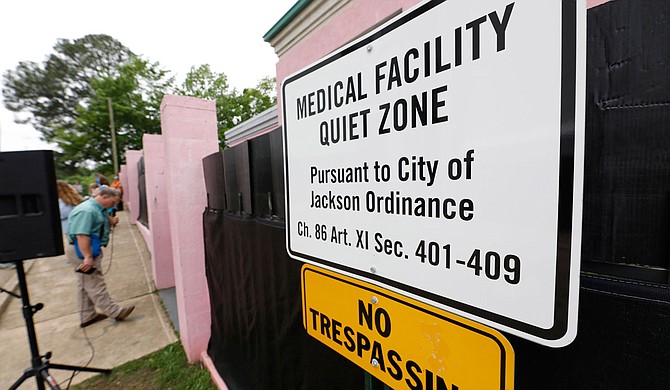Mississippi Republican Gov. Tate Reeves signed a law Wednesday that bans abortion based on the race, sex or genetic anomalies of a fetus, adding new limits in a state that already has some of the strictest abortion laws in the U.S. Photo by Rogelio V. Solis via AP
JACKSON, Miss. (AP) — Mississippi Republican Gov. Tate Reeves signed a law Wednesday that bans abortion based on the race, sex or genetic anomalies of a fetus, adding new limits in a state that already has some of the strictest abortion laws in the U.S.
Supporters say the new law would prevent abortion for Down syndrome or other conditions.
“Women should not be pressured to have an abortion because their child is different: of a different ability, of a different race, of a different sex,” Jameson Taylor, vice president for policy with the Mississippi Center for Public Policy, said in a statement Wednesday.
Opponents said it would unconstitutionally interfere with private medical decisions in a state with one abortion clinic.
“The Supreme Court has consistently held that abortion before viability is an unqualified right; the state has no reason to question women on the reason they have made this difficult choice,"said Beth Orlansky, advocacy director for the Mississippi Center for Justice.
With the addition of conservative justices to the U.S. Supreme Court, several states have enacted abortion restrictions in recent years. Some laws are aimed at spurring court challenges seeking to overturn Roe v. Wade, the landmark 1973 Supreme Court ruling that legalized abortion nationwide.
Reeves signed the new law two days after the U.S. Supreme Court struck down a Louisiana law that required doctors who do abortions to have admitting privileges at a nearby hospital. Mississippi's nearly identical admitting privileges law has long been blocked by a federal judge.
The new Mississippi law that bans certain reasons for abortion took effect as soon as the governor signed the bill. It sets a prison sentence of up to 10 years for any physician or other health care worker who knowingly violates the ban. It specifies that the woman getting the abortion would not be punished, and the ban does not apply if the woman faces a medical emergency because of the pregnancy.
Nine states ban abortion because of the sex of the fetus, two ban it because of race and two ban it because of genetic anomaly, according to the Guttmacher Institute, a research group that supports abortion rights. Until Wednesday, Missouri was the only state that has banned all three. Kentucky’s ban on all three reasons has been put on hold by court order.
Mississippi has long required a 24-hour waiting period for abortions. Minors also must obtain permission from their parents or a judge.
In 2018, Mississippi tried to ban most abortions at 15 weeks. The state’s only abortion clinic sued, a federal district judge blocked the law and a federal appeals court agreed with his ruling. State officials have asked the U.S. Supreme Court to consider the case.
In 2019, Mississippi legislators voted to ban most abortions once fetal cardiac activity can be detected, which can be at about six weeks — before some women know they are pregnant. A judge blocked the restriction from becoming law.
Copyright Associated Press. All rights reserved. This material may not be published, broadcast, rewritten, or redistributed.



Comments
Use the comment form below to begin a discussion about this content.